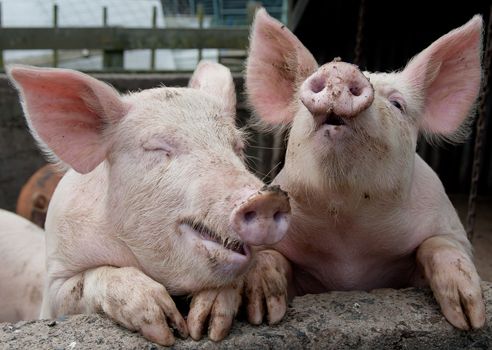Reading time: Less than 1 minute
Increase your vocabulary and you’ll make your writing much more precise. That’s why I provide a word of the week. Today’s word: porcine…
I don’t know that I’ve ever used the word porcine, but when my colleague John Friesen emailed me about it, I knew what it meant. You can practically see the word pork buried right in there!
John found it in the book How Google Works byJonathan Rosenberg and Eric Schmidt. Here is how the authors used it (while giving another clue as to its meaning):
Your porcine competitor is probably feasting at a closed trough.
The word means “affecting, or resembling a pig or pigs,” and the adjective dates back to the early 15th century, meaning, “pertaining to swine” or “swinish.” It comes from the Old French porcin or directly from Latin porcinus “of a hog.”
An interesting side note, perhaps appropriate during this election season, is that the phrase pork barrel — meaning the use of government funds for projects designed to please voters and win votes — was first used in 1907. You can see it in the following quote from U.S. President President William Howard Taft (found in a publication called The Outlook and dated Nov. 6, 1909):
“Now there is a proposition that we issue $500,000,000 or $1,000,000,000 of bonds for a waterway, and then that we just apportion part to the Mississippi and part to the Atlantic, a part to the Missouri and a part to the Ohio. I am opposed to it. I am opposed to it because it not only smells of the pork barrel, but it will be the pork barrel itself. Let every project stand on its bottom.”

